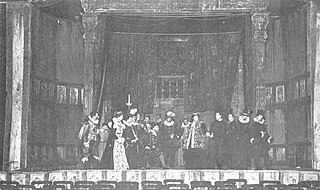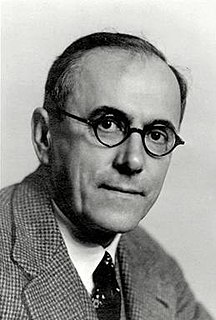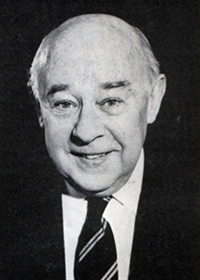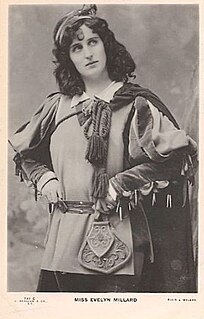Ben Iden Payne, also known as B. Iden Payne, was an English actor, director and teacher. Active in professional theater for seventy years, he helped the first modern Repertory Theatre in the United Kingdom, was an early and effective advocate for Elizabethan staging of Shakespeare plays, and served as an inspiration for Shakespeare Companies and University theater programs throughout North America and the British Isles. His name lives on as the name of a theater at the University of Texas as well as annual theater awards presented in Austin, Texas.

Harley Granville-Barker was an English actor, director, playwright, manager, critic, and theorist. After early success as an actor in the plays of George Bernard Shaw, he increasingly turned to directing and was a major figure in British theatre in the Edwardian and inter-war periods. As a writer his plays, which tackled difficult and controversial subject matter, met with a mixed reception during his lifetime but have continued to receive attention.

Thomas William Robertson was an English dramatist and stage director.

The Royal Court Theatre, at different times known as the Court Theatre, the New Chelsea Theatre, and the Belgravia Theatre, is a non-commercial West End theatre in Sloane Square, in the Royal Borough of Kensington and Chelsea, London, England. In 1956 it was acquired by and remains the home of the English Stage Company and is notable for its contributions to contemporary theatre.

William Poel (1852-1934) was an English actor, theatrical manager and dramatist best known for his presentations of Shakespeare.

Gregan McMahon, CBE was an Australian actor and theatrical director and producer.
The Shaw Festival is a major Canadian theatre festival in Niagara-on-the-Lake, Ontario, the second largest repertory theatre company in North America. Founded in 1962, its original mandate was to stimulate interest in George Bernard Shaw and his period, and to advance the development of theatre arts in Canada.

Charles Benjamin Purdom was a British author, drama critic, town planner, and economist. He was one of the pioneers and founders of the first garden cities, Letchworth and Welwyn Garden City, the latter of which he was appointed Finance Director between 1919–1928. He was then made Honorary Secretary, then Treasurer of the International Federation for Housing and Planning (1931–1935). He was also founder of the Letchworth and Welwyn Garden City Theatre Society, now the Welwyn Drama Club. He won the Howard Walden cup at the Welwyn Garden City Drama Festival and the David Belasco cup in New-York in 1927. He was an author of many books on city development, on Shakespeare and Bernard Shaw plays, Harley Granville-Barker, and on producing plays. He was editor of an English literary periodical called Everyman, covering books, drama, music and travel and featured articles by renowned authors such as Ivor Brown, Arthur Machen, G. K. Chesterton, A. E. Coppard, and Bertrand Russell. He was General Secretary of British Equity (1939–1940) and joint secretary of the London Theatre Council. He was also the earliest biographer of Meher Baba. He was father of the actor Edmund Purdom. He died in Welwyn Garden City in 1965.

St. John Emile Clavering Hankin was an English Edwardian essayist and playwright. Along with George Bernard Shaw, John Galsworthy, and Harley Granville-Barker, he was a major exponent of Edwardian "New Drama". Despite success as a playwright he died by his own hand, and his work was largely neglected until the 1990s.

Sam Walters MBE is a British theatre director who retired in 2014 as Artistic Director of the Orange Tree Theatre in Richmond, London. He has also directed in the West End and at Ipswich, Canterbury and Greenwich, as well as at LAMDA, RADA and Webber Douglas. After 42 years Walters, the United Kingdom's longest-serving artistic director, and his wife and associate director, Auriol Smith, stepped down from their posts at the Orange Tree Theatre in June 2014.

John Eugene Vedrenne, often known as J. E. Vedrenne, was a West End theatre producer who co-managed the Savoy Theatre with Harley Granville-Barker, and then the Royal Court Theatre. During their time at the latter, they premiered several of George Bernard Shaw's plays, including John Bull's Other Island and Major Barbara. His partnership with Granville-Barker ending in 1907, Vedrenne then became associated with Lewis Waller at the Lyric Theatre, and in 1911 with Dennis Eadie at the Royalty Theatre, and later still at the Kingsway Theatre.

George Winchester Howe was an English actor who played numerous stage roles, was a frequent broadcaster on radio and television and appeared in four feature films.
Waste is a play by the English author Harley Granville Barker. It exists in two wholly different versions, from 1906 and 1927. The first version was refused a licence by the Lord Chamberlain and had to be performed privately by the Stage Society in 1907; the second was finally staged in public at the Westminster Theatre in 1936.

Dorothy Minto was a prominent actress on the London stage between 1905 and the mid-1930s, notably appearing in the first runs of several plays written by George Bernard Shaw. She also featured in a small number of films between 1916 and 1936. While her early stage career concentrated on classical plays and serious new work, from 1912 onwards she devoted herself more to musicals and comedies.

The Purcell Operatic Society was a short-lived but influential London opera company devoted to the production of stage works by Henry Purcell and his contemporaries. It was founded in 1899 by the composer Martin Shaw and folded in 1902. Its stage director and production designer was Gordon Craig whose productions for the company marked the beginning of his career as a theatre practitioner. Their debut production of Purcell's opera Dido and Aeneas in 1900 was one of the earliest staged performances of the work in modern times.

Robert Bilcliffe Loraine was a successful London and Broadway British stage actor, actor-manager, and soldier who later enjoyed a side career as a pioneer aviator. Born in New Brighton, his father was Henry Loraine and mother Edith Kingsley. Robert made his first stage appearance in the English provinces in 1889, prior to serving in the Second Boer War. He introduced the George Bernard Shaw play Man and Superman to Broadway in 1905.

Evelyn Mary Millard was an English Shakespearean actress, actor-manager and "stage beauty" of the late nineteenth and early twentieth centuries perhaps best known for creating the role of Cecily Cardew in the 1895 premiere of Oscar Wilde's play The Importance of Being Earnest.

Louis James Calvert was a British stage and early film actor of the late 19th and early 20th centuries and an actor-manager. He is perhaps best remembered today for having created roles in plays by George Bernard Shaw and for appearing in King John (1899), the earliest known example of any film based on Shakespeare,

Gertrude Kingston was an actress, an English actor-manager and artist.

Helen Rous was a versatile Irish actor who played many times on the London stage. Her parts included supporting roles in works by Oscar Wilde and George Bernard Shaw.
















